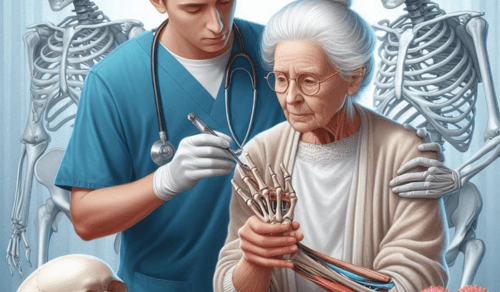Fractures in older adults can disrupt daily life and cause fear. Orthopedic surgeons step in as vital players in managing these injuries. They assess, guide, and treat with precision. Their role involves reducing pain, restoring mobility, and preventing future fractures. Ortho 1 Medical Group exemplifies this approach. They focus on personalized care and recovery.
Initial Assessment and Diagnosis
Once a fracture occurs, quick and accurate assessment is key. Orthopedic surgeons examine the site and use imaging tools like X-rays for a clear view. They identify the fracture type and severity. This is crucial because each type of fracture requires a specific treatment plan.
Choosing the Right Treatment
There are several treatment options available. Orthopedic surgeons decide based on the fracture type and the patient’s overall health. Here are three common approaches:
- Non-surgical methods: Splints or casts to immobilize the bone.
- Minimally invasive procedures: Techniques like pinning to stabilize fractures.
- Full surgical intervention: Involves plates or screws when necessary.
Role in Pain and Mobility Management
Pain relief is a top priority. Surgeons work to minimize discomfort through targeted interventions. By properly aligning bones and stabilizing the fracture, they help reduce pain. Restoring mobility follows. Surgeons collaborate with physical therapists to ensure a smooth transition back to daily activities.
Preventing Future Fractures
Orthopedic surgeons play a role in preventing future fractures. They may recommend lifestyle changes or supplements. Understanding bone health is important. Surgeons often advise on nutrition and exercise to enhance bone strength. Consistent follow-up appointments help track progress and make necessary adjustments.
Comparing Treatment Options
Let’s compare non-surgical and surgical treatments:
| Treatment Type | Pros | Cons |
| Non-surgical | Less invasiveLower risk of complications | May not be suitable for all fracturesLonger recovery period |
| Surgical | Effective for severe fracturesFaster recovery in some cases | Higher risk of complicationsRequires anesthesia |
Collaboration with Other Specialists
Orthopedic surgeons do not work alone. They often team up with geriatricians, physical therapists, and nutritionists. This multidisciplinary approach ensures comprehensive care. Each specialist offers valuable insights, contributing to a well-rounded recovery plan.
Educating the Patient and Family
Patient education is a vital part of the process. Surgeons discuss the nature of the fracture, treatment options, and expected outcomes. They also offer advice on how to prevent future incidents. Empowering the patient and family with information supports a better recovery journey.
Conclusion
Orthopedic surgeons are essential in managing fractures among older adults. Their expertise ensures effective treatment and recovery. By focusing on pain relief, mobility, and prevention, they improve quality of life. With a team approach and patient education, they help pave the way to stronger, healthier futures.




